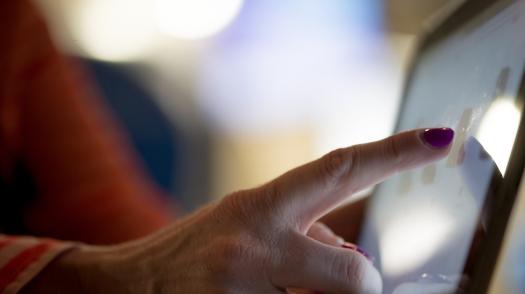This section talks about the way an acquired brain injury can affect hormones. We also talk about sex and sexuality.
Our thanks to the Pituitary Foundation – www.pituitary.org.uk – for its help with this information.
Sometimes, an acquired brain injury can affect the part of the brain that looks after our hormones.
You may hear one of the difficulties with the way our hormones are produced and regulated described as ‘hypopituitarism’.
But what does this mean in real terms? And what effect does it have on people’s lives?
Let's look at some of the things hormones control, it’s easy to see how wide-ranging hormonal difficulties can be:
- Our sex drive
- The way we reach puberty
- Feelings of hunger or thirst
- Our growth
- Energy levels
- The way we put on weight
Sex and sexuality aren’t always the easiest subjects to talk about.
Perhaps it’s because of the embarrassment attached to talking about sex, but this is an aspect of acquired brain injury that’s sometimes overlooked.1 Yet these are issues that may cause a great deal of distress to parents and to children and young people themselves.
Some of the ways in which hypopituitarism presents itself are:
- Delayed puberty: where a young person doesn’t reach physical maturity at the usual age range.
- Growth is affected – most commonly short stature.
- Periods may stop in young women.
- Reduced libido: a young person’s sex drive might be reduced.2
- In some cases, children may reach puberty earlier than expected. This is known as ‘precocious puberty’.3
Why this happens
The pituitary gland is at the base of the brain. It produces hormones and is connected by a stalk to the hypothalamus, which creates hormones too.
The pituitary gland is often referred to as the 'master gland', because it controls several of the other hormone glands. It is usually about the size of a bean and consists of two parts (often called lobes) - a front part, called the anterior pituitary and a back part, called the posterior pituitary.
Damage to this part of the brain affects the production of hormones, which are crucial in sexual functioning and our desire to have sex. They also drive the processes along when we reach puberty.
All of these things can be affected by injury to these parts of the brain. But these aren’t the only hormones produced in our brains.
There are also hormones that control thirst and hunger. If a child is thirsty or hungry much of the time, then it may be clear that these parts of the brain have been affected by the injury.
But other difficulties with hormones might not be so obvious. We’ve spoken about the ‘hidden’ nature of the effects of acquired brain injury. If the parts of the brain that look after hormones are affected, then the effects can be difficult to spot.
Let's look again at two of the key jobs our hormones do for us:
- Growth
- Reaching puberty
These processes are gradual – they don’t happen overnight. Neither do they happen to children at the same age. And so it can be hard to pick up on any difficulties.
These aren’t just physical difficulties
The difficulties described above may be biological, but they have an enormous impact on emotional wellbeing. Most of us can remember how difficult our teenage years can be. It’s a time of enormous upheaval, and many young people want to ‘fit in’ with those around them.
On top of this is the issue of embarrassment. It may be tough for young people to approach their parents or a GP with any concerns they have about sex and sexuality.
Failure to reach maturity should be picked up over time. But there are other effects, such as difficulty achieving an erection and impotence that can have dramatic effects on someone’s wellbeing and sense of themselves.
This kind of effect may also be something that takes a long time to come to the surface – even years after the initial injury.4, 5
There is more information and support at The Pituitary Foundation at www.pituitary.org.uk.
Michael seemed so unhappy for a long time ... as he got older his depression seemed to have much more of a hold over him. It was some time before we knew he’d been so anxious about not being able to have a sexual relationship with a girlfriend." Parent's experience
Talking about sex is rarely easy, but communication is key here. Some parents may feel that their child’s change in circumstances makes talking about sex irrelevant. Some might worry about ‘giving them ideas’ in talking through some of the issues.6
But – as with all young people – education about sex is extremely important. Young people may need information about what sex involves on a physical level, and contraception.7
While sex education is taught in schools, we know that children with an acquired brain injury can struggle to take information on board. This is something that’s worth keeping in mind.8
And this doesn’t just apply to children who are experiencing difficulties with hormones
It’s also important to remember that our ideas about sex aren’t just about the physical side of things. People have a range of different attitudes about sex. People make different judgments, and these complicated messages are around us all the time.
Some young people with an acquired brain injury may struggle with these often complex ideas about how people should and shouldn’t behave.9 There may be an issue of vulnerability and awareness to consider in some young people.
As with all of our material, it’s not our intention to add to your worries about your child. Many children won’t experience these effects at all, and some difficulties may resolve themselves.10 But we hope to have given you some idea of the potential difficulties.
Sexual disinhibition
An acquired brain injury can mean some children and young people become more disinhibited. This means they have less inhibition. You might think of inhibition as a ‘brake’ on our behaviour that stops us doing things others may find unacceptable.
In some circumstances, this disinhibited behaviour can be of a sexual nature. Often, this can mean a child or young person might say inappropriate things.11
They may not know when is an appropriate time to repeat or share the things they’ve been told about sex or sexuality.12 In some circumstances, disinhibited behaviour may take the form of physical contact.
We know that children and young people with an acquired brain injury sometimes struggle to grasp the unspoken ‘rules’ that we follow each day.
Some people with an acquired brain injury may stand too close to others and make them uncomfortable. Some may touch people or themselves in inappropriate places.
Michael would ask any girl he met for their phone number, and it could be quite difficult to deal with. We couldn’t help but worry about what he would be like in the workplace." Parent's experience
What can we do about this?
Encouraging good behaviour. This may seem obvious, but it is important to encourage children when they do behave appropriately. Equally, it is important to try not to encourage inappropriate behaviour.
Again, this may seem obvious, but ‘encouraging’ doesn’t necessarily mean ‘egging someone on’. Laughing or smiling may have the effect of encouraging a child.


